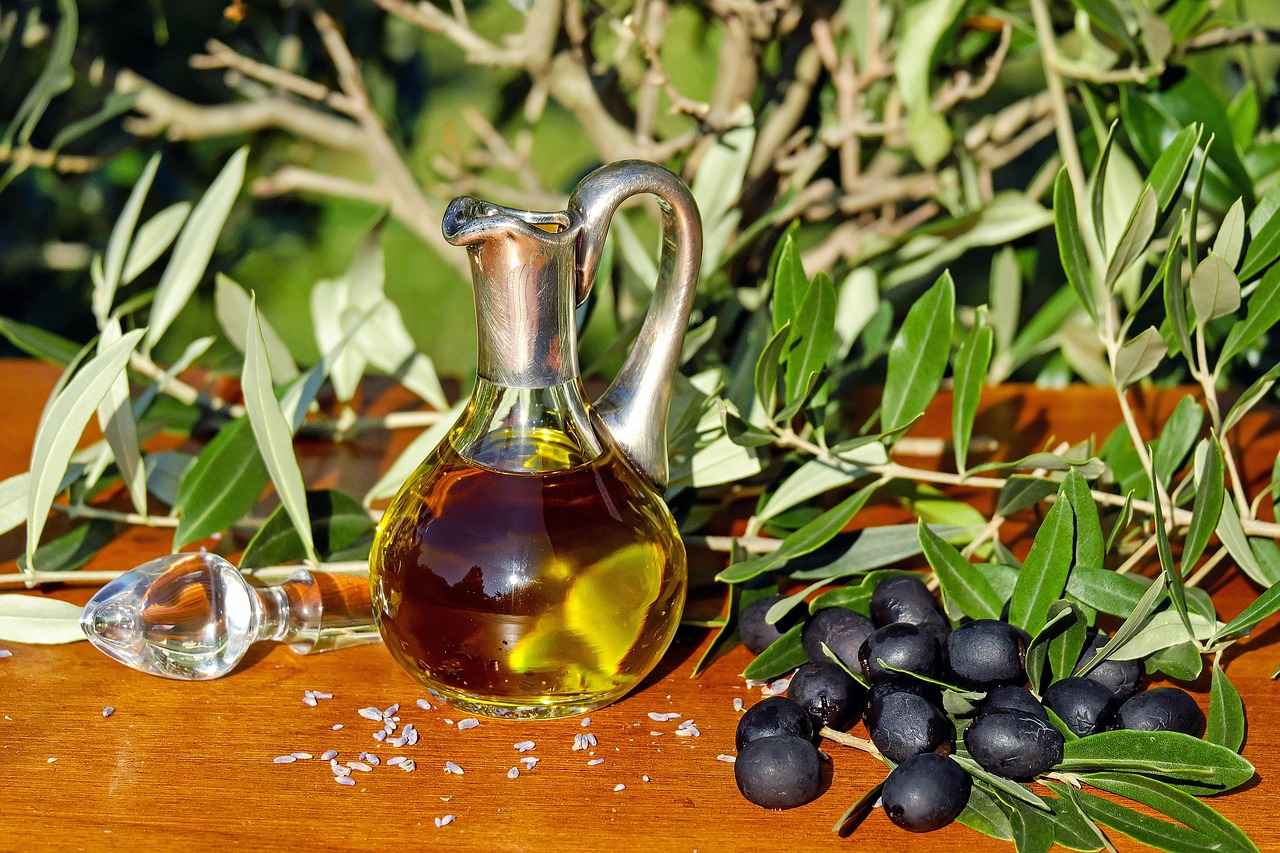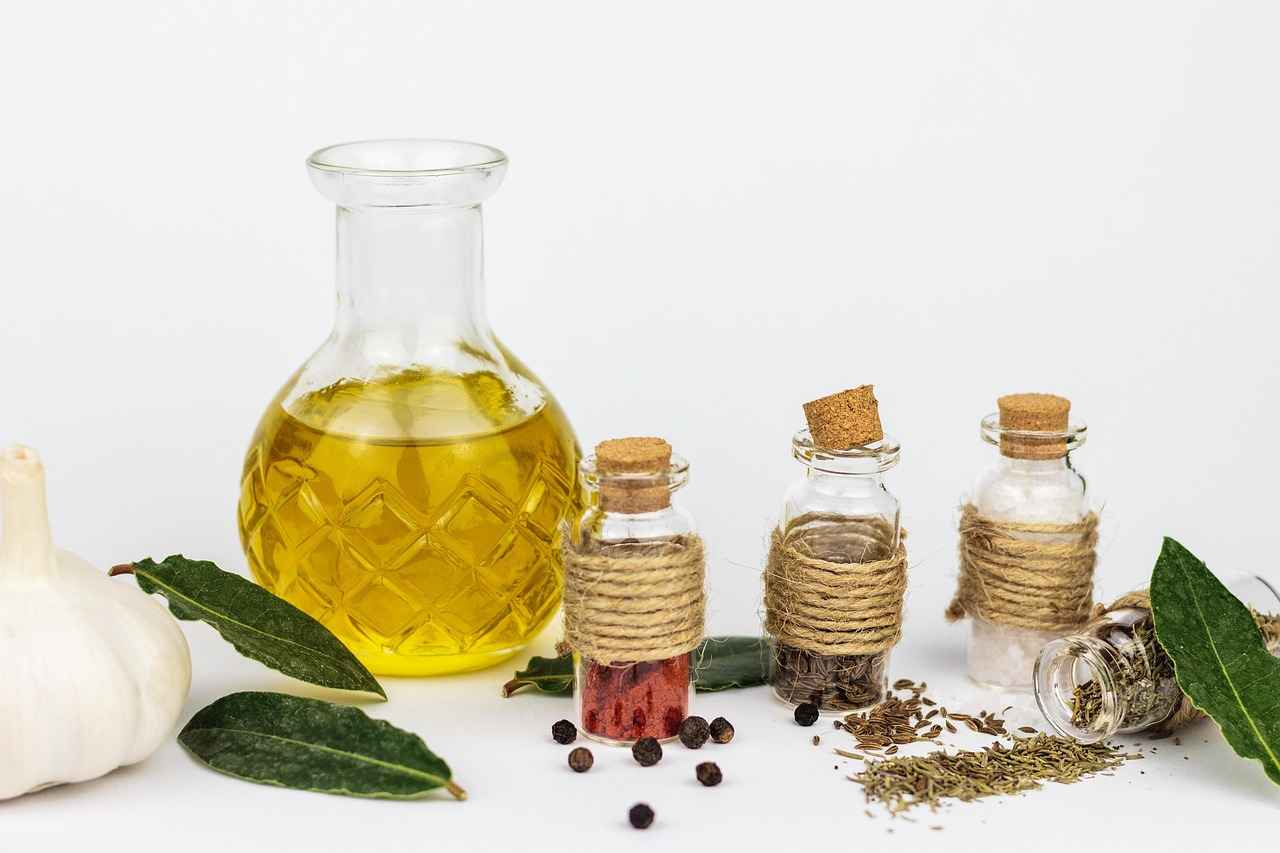This article delves into the remarkable skin hydration benefits of borage oil, elaborating on its unique properties, diverse uses, and how it can significantly enhance skincare routines for healthier, more hydrated skin.
What is Borage Oil?
Borage oil is extracted from the seeds of the borage plant, known scientifically as Borago officinalis. It is celebrated for its high concentration of gamma-linolenic acid (GLA), an essential fatty acid that plays a vital role in maintaining skin health and hydration.
Key Benefits of Borage Oil for Skin
- Anti-Inflammatory Properties: Borage oil is renowned for its ability to calm inflamed skin, making it effective in reducing discomfort associated with conditions like eczema and dermatitis.
- Enhanced Moisture Retention: The GLA content aids in locking moisture into the skin, providing deep hydration and nourishment.
- Soothing Dry and Irritated Skin: It is particularly beneficial for those suffering from dry skin, offering relief and promoting a healthy skin barrier.
How to Incorporate Borage Oil into Your Skincare Routine
Integrating borage oil into your daily skincare regimen can be seamless:
- Direct Application: Apply a few drops directly to dry areas for instant hydration.
- As an Ingredient in Products: Look for creams and serums that list borage oil among their ingredients for a convenient way to enjoy its benefits.
Potential Side Effects of Borage Oil
While borage oil is generally safe for most skin types, it’s crucial to be aware of potential side effects:
- Allergic Reactions: Some individuals may experience allergic reactions, such as rashes or hives.
- Skin Irritation: Monitor your skin for any signs of irritation during initial use.
Comparing Borage Oil with Other Oils
When comparing borage oil to other popular oils:
- Evening Primrose Oil: Both oils contain GLA, but borage oil has a higher concentration, enhancing its effectiveness.
- Jojoba Oil: While jojoba oil is great for balancing oil production, borage oil excels in deep hydration for dry skin.
Conclusion: The Power of Borage Oil for Hydrated Skin
Borage oil stands out as a powerhouse for skin hydration, offering a multitude of benefits that can elevate any skincare routine. Its unique properties make it an invaluable addition for anyone seeking healthier, more hydrated skin.

What is Borage Oil?
Borage oil is a remarkable oil extracted from the seeds of the borage plant, scientifically known as Borago officinalis. This oil is particularly valued for its high concentration of gamma-linolenic acid (GLA), a type of omega-6 fatty acid that is essential for maintaining healthy skin. GLA is renowned for its ability to support skin hydration and nourishment, making borage oil a popular choice in various skincare formulations.
Originating from the Mediterranean region, the borage plant has been used for centuries due to its therapeutic properties. The oil is extracted through a cold-pressing method that preserves its beneficial compounds, ensuring that users receive the maximum benefits. With its unique composition, borage oil stands out among other oils, particularly for individuals seeking to improve their skin’s moisture levels.
GLA plays a crucial role in maintaining the skin’s barrier function, which helps to retain moisture and protect against environmental stressors. A well-functioning skin barrier is essential for preventing dryness and irritation, making borage oil an excellent option for those with dry or sensitive skin.
- Enhances Hydration: The high GLA content in borage oil helps to lock in moisture, providing intense hydration to the skin.
- Soothes Inflammation: Borage oil possesses anti-inflammatory properties that can help calm irritated skin and reduce redness.
- Improves Skin Texture: Regular use of borage oil can lead to smoother, more supple skin by promoting cellular regeneration.
Integrating borage oil into your skincare routine is simple. It can be used directly on the skin, added to creams, or mixed with other oils for enhanced effects. For those with specific skin concerns, borage oil can be applied to targeted areas to provide immediate relief.
In summary, borage oil is a powerhouse ingredient that offers significant benefits for skin hydration and overall health. Its rich GLA content makes it an essential addition to any skincare routine, particularly for those seeking to combat dryness and enhance their skin’s natural glow.

Key Benefits of Borage Oil for Skin
Borage oil, extracted from the seeds of the borage plant, is a treasure trove of benefits for skin health. It is particularly renowned for its high content of gamma-linolenic acid (GLA), a fatty acid that plays a crucial role in maintaining skin hydration. Below, we delve into the key benefits of borage oil, showcasing why it is an essential ingredient in skincare products.
- Anti-Inflammatory Properties: Borage oil is celebrated for its anti-inflammatory properties, which help to calm irritated skin. It is especially effective for individuals suffering from conditions such as eczema and dermatitis, as it reduces redness and discomfort, promoting overall skin health.
- Enhanced Moisture Retention: With its rich GLA content, borage oil aids in moisture retention, making it an excellent choice for those with dry skin. It provides deep hydration without leaving a greasy residue, making the skin feel soft and supple.
- Soothing Dry and Irritated Skin: Borage oil has the ability to soothe dry, irritated skin, offering relief from itching and flakiness. This makes it a go-to solution for those seeking to restore their skin’s natural moisture barrier.
- Improvement of Skin Texture: Regular use of borage oil can lead to improved skin texture. Its nourishing properties help to smooth out rough patches, giving the skin a more even and radiant appearance.
- Support for Skin Barrier Function: By enhancing the skin’s natural barrier, borage oil helps to protect against environmental stressors. This is vital for maintaining healthy skin and preventing moisture loss.
In conclusion, the benefits of borage oil extend far beyond simple hydration. Its anti-inflammatory properties, ability to retain moisture, and soothing effects make it a versatile ingredient in skincare. Whether used alone or as part of a formulated product, borage oil is a powerful ally for achieving healthier, more hydrated skin.
Anti-Inflammatory Properties
Borage oil is renowned for its , which play a crucial role in promoting skin health. This oil, extracted from the seeds of the borage plant, is rich in gamma-linolenic acid (GLA), a fatty acid that is known to reduce inflammation and soothe irritated skin. When applied topically, borage oil can significantly calm conditions such as eczema and dermatitis, which are often characterized by redness, swelling, and discomfort.
One of the standout benefits of borage oil is its ability to reduce redness associated with various skin irritations. This is particularly beneficial for individuals with sensitive skin types, as it helps create a more even skin tone while alleviating the discomfort often experienced with inflammatory skin conditions. By incorporating borage oil into your skincare routine, you can promote a healthier complexion, free from the visible signs of irritation.
Moreover, the soothing effects of borage oil extend beyond just aesthetic improvements. It actively works to restore the skin’s natural barrier, which is essential for retaining moisture and protecting against environmental stressors. This property not only helps relieve existing irritation but also prevents future flare-ups, making it an invaluable addition to any skincare regimen focused on skin health.
In conclusion, the anti-inflammatory properties of borage oil make it a powerful ally in the quest for calm, healthy skin. Its ability to reduce redness and discomfort while promoting moisture retention places it among the top choices for individuals seeking relief from inflammatory skin conditions. Whether used alone or as part of a broader skincare strategy, borage oil is a remarkable ingredient that can enhance overall skin vitality.
Soothing Eczema and Dermatitis
Borage oil, extracted from the seeds of the borage plant, is renowned for its remarkable ability to alleviate the symptoms of eczema and dermatitis. These skin conditions can cause significant discomfort, often leading to persistent itching, redness, and dryness. Fortunately, the unique properties of borage oil can provide much-needed relief for those suffering from these ailments.
One of the primary components of borage oil is gamma-linolenic acid (GLA), an essential fatty acid that plays a crucial role in maintaining skin health. GLA is known for its anti-inflammatory properties, which help to calm irritated skin and reduce inflammation. This can be particularly beneficial for individuals experiencing flare-ups associated with eczema and dermatitis.
Additionally, borage oil promotes skin barrier repair, which is essential for maintaining hydration and preventing moisture loss. By enhancing the skin’s natural barrier function, borage oil helps to lock in moisture, providing long-lasting hydration that is often lacking in dry, irritated skin.
To effectively incorporate borage oil into your skincare routine, consider the following options:
- Direct Application: Applying borage oil directly to affected areas can offer immediate relief from itching and dryness.
- In Skincare Products: Look for creams and lotions that contain borage oil as a key ingredient, allowing for easier application and consistent use.
While borage oil is generally safe for most skin types, it is advisable to perform a patch test before widespread application to ensure compatibility. Some individuals may experience mild skin irritation or allergic reactions, although these cases are rare.
In conclusion, borage oil stands out as a powerful ally in the fight against eczema and dermatitis, providing soothing relief from discomfort while promoting overall skin health. Its ability to enhance hydration and repair the skin barrier makes it a valuable addition to any skincare regimen.
Reducing Skin Redness
Borage oil has gained significant attention in the skincare community for its ability to effectively reduce skin redness. This property is particularly beneficial for individuals with sensitive skin, as it helps to calm irritation and promote a more balanced skin tone. The oil’s high content of gamma-linolenic acid (GLA) plays a crucial role in this process, providing essential nutrients that support skin health.
One of the most notable advantages of incorporating borage oil into your skincare routine is its anti-inflammatory properties. These properties can help to alleviate redness caused by various skin conditions such as rosacea, eczema, and dermatitis. By reducing inflammation, borage oil not only improves the appearance of the skin but also enhances overall comfort.
Moreover, the oil’s ability to moisturize and soothe the skin contributes to a more even complexion. When the skin is well-hydrated, it is less prone to irritation and redness. This makes borage oil an excellent choice for those looking to improve their skin’s texture and tone.
| Benefits of Borage Oil | Description |
|---|---|
| Reduces Redness | Calms irritated skin and promotes a balanced complexion. |
| Anti-Inflammatory | Helps alleviate symptoms of skin conditions like eczema and rosacea. |
| Moisturizes | Enhances hydration, reducing the likelihood of irritation. |
To maximize the benefits of borage oil, consider using it in conjunction with other soothing ingredients, such as aloe vera or chamomile. This combination can further enhance its effectiveness in reducing redness and improving skin health.
In conclusion, borage oil stands out as a powerful ally for those struggling with skin redness. Its unique properties not only address the symptoms but also work towards long-term skin health, making it a valuable addition to any skincare regimen.
Hydration and Moisture Retention
Borage oil is a remarkable natural ingredient known for its high content of gamma-linolenic acid (GLA), which plays a crucial role in maintaining skin hydration. This oil is derived from the seeds of the borage plant and is highly valued for its ability to enhance moisture retention, making it an ideal choice for individuals with dry skin.
One of the standout features of borage oil is its ability to nourish the skin without leaving a greasy residue. This is particularly beneficial for those who seek deep hydration but are concerned about the heaviness often associated with oils. Borage oil penetrates the skin effectively, delivering moisture and essential fatty acids directly where they are needed most.
Furthermore, the high GLA content in borage oil helps to strengthen the skin’s natural barrier, which is vital for preventing moisture loss. This barrier function is especially important for individuals with compromised skin, as it aids in protecting against environmental stressors that can lead to further dryness and irritation.
- Deep Hydration: Borage oil provides intense hydration, making it suitable for even the driest skin types.
- Non-Greasy Finish: Users can enjoy the moisturizing benefits without the oily feel.
- Enhanced Skin Barrier: It supports the skin’s protective barrier, reducing moisture loss.
To incorporate borage oil into your skincare routine, consider using it in the following ways:
- Apply it directly to dry areas for targeted moisture.
- Look for creams and serums that contain borage oil as a key ingredient.
- Mix it with other carrier oils for a customized blend that meets your specific skin needs.
In conclusion, borage oil stands out as a powerful ally in the quest for hydrated skin. Its ability to retain moisture while nourishing the skin makes it a valuable addition to any skincare routine, particularly for those struggling with dryness.

How to Incorporate Borage Oil into Your Skincare Routine
Incorporating borage oil into your skincare routine can be both simple and effective. This remarkable oil, known for its high gamma-linolenic acid (GLA) content, offers numerous benefits for skin hydration and overall health. Here are various methods to seamlessly integrate borage oil into your daily regimen:
- Direct Application: One of the easiest ways to use borage oil is through direct application. Simply take a few drops of the oil and gently massage it into your skin, focusing on dry areas. This method provides immediate hydration and relief, making it ideal for dry patches or irritated skin.
- As an Ingredient in Creams: Many skincare products on the market now include borage oil as a key ingredient. Look for moisturizers or serums that list borage oil in their formulations. These products allow you to benefit from its properties without needing to apply the oil directly, making it a convenient option for busy lifestyles.
- Mixing with Other Oils: For enhanced benefits, consider mixing borage oil with other carrier oils, such as jojoba or sweet almond oil. This combination can amplify the moisturizing effects while providing a unique blend of nutrients that cater to your skin’s specific needs.
- In DIY Skincare Recipes: If you enjoy creating your own skincare products, borage oil can be an excellent addition to homemade creams, balms, or masks. Incorporating it into your DIY recipes can help customize your skincare routine to target specific concerns, such as dryness or irritation.
By incorporating borage oil into your skincare routine through these methods, you can enhance your skin’s hydration, soothe dryness, and promote a healthier complexion. Remember to start with small amounts and observe how your skin reacts to this nourishing oil.
Direct Application
Direct Application of Borage Oil is a simple yet effective method to enhance skin hydration and address various skin concerns. When applied directly to the skin, borage oil acts as a potent moisturizer, delivering immediate hydration to areas that are particularly dry or in need of extra care.
Borage oil is renowned for its high concentration of gamma-linolenic acid (GLA), which plays a vital role in maintaining skin health. This essential fatty acid helps to strengthen the skin barrier, ensuring that moisture is locked in and preventing further dryness. The oil is easily absorbed, making it suitable for all skin types, including sensitive skin.
- Immediate Hydration: Applying borage oil directly onto dry patches can provide instant relief, making the skin feel softer and more supple.
- Soothes Irritation: For those suffering from conditions like eczema or dermatitis, direct application can help calm inflamed skin, reducing redness and discomfort.
- Enhanced Moisture Retention: The oil’s unique composition aids in retaining moisture, ensuring that the skin remains hydrated for longer periods.
To use borage oil effectively, follow these simple steps:
- Start with clean, dry skin.
- Apply a few drops of borage oil directly onto the affected area.
- Gently massage the oil into the skin using circular motions.
- Allow the oil to absorb fully before applying any other products.
Incorporating borage oil into your skincare routine can be a game-changer, especially for those battling dry skin or irritation. Its ability to provide both immediate and long-lasting hydration makes it a valuable addition to any skincare arsenal.
In conclusion, the direct application of borage oil is not only easy but also highly effective in promoting healthier skin. Whether you’re dealing with specific skin issues or simply looking to enhance your overall skin hydration, borage oil is a natural and powerful solution.
As an Ingredient in Products
Borage oil has gained significant popularity in the skincare industry due to its remarkable properties and benefits for the skin. Its incorporation into various skincare products allows users to enjoy the advantages of this potent oil without the need for direct application. This convenience makes it an appealing choice for those seeking effective skincare solutions.
| Product Type | Benefits | Usage |
|---|---|---|
| Moisturizers | Deep hydration and nourishment | Apply daily for best results |
| Serums | Enhanced skin repair and moisture retention | Use before moisturizer |
| Face Masks | Soothing and calming effects | Apply weekly for hydration boost |
Many skincare brands are now incorporating borage oil into their formulations, recognizing its anti-inflammatory and moisture-retaining properties. This trend allows users to effortlessly integrate borage oil into their daily routines. For instance, a moisturizer enriched with borage oil can help combat dry skin while providing a soothing effect, making it ideal for individuals with sensitive skin.
Additionally, serums that include borage oil can deliver concentrated hydration, promoting skin repair and rejuvenation. These products are particularly beneficial for those dealing with conditions like eczema or dermatitis, as they can help reduce redness and irritation.
Moreover, face masks infused with borage oil offer a spa-like experience at home, delivering intense hydration and calming the skin. Regular use can enhance the overall texture and appearance of the skin, making it look healthier and more radiant.
In conclusion, the presence of borage oil in skincare products provides a convenient and effective way for users to enjoy its numerous benefits. Whether through moisturizers, serums, or masks, incorporating this powerful oil into your skincare routine can lead to healthier, more hydrated skin.

Potential Side Effects of Borage Oil
Borage oil, renowned for its remarkable skin benefits, is generally considered safe for most users. However, it is essential to be aware of potential side effects that may arise in some individuals. Understanding these risks can help you make informed decisions about incorporating borage oil into your skincare routine.
Allergic Reactions
Although rare, some individuals may experience allergic reactions to borage oil. Symptoms can include rashes, hives, or even more severe reactions in sensitive individuals. It is crucial to conduct a patch test before widespread use. To perform a patch test, apply a small amount of borage oil to a discreet area of skin and wait 24 hours to observe any adverse reactions.
Skin Irritation
For some users, borage oil may cause mild skin irritation. Symptoms can manifest as redness, itching, or a burning sensation. It is advisable to monitor your skin’s reaction closely during the initial application. If irritation occurs, discontinue use immediately and consult a dermatologist if symptoms persist.
Interactions with Medications
Individuals taking certain medications, especially those that affect blood clotting, should consult a healthcare professional before using borage oil. The oil may interact with anticoagulants, potentially increasing the risk of bleeding. Always prioritize safety and seek professional advice if unsure.
Conclusion
While borage oil offers numerous benefits for skin hydration and health, it is vital to be aware of potential side effects. Performing a patch test, monitoring skin reactions, and consulting with healthcare professionals can ensure a safe and effective skincare experience. By taking these precautions, you can enjoy the advantages of borage oil while minimizing any risks.
Allergic Reactions
While borage oil is celebrated for its numerous skin benefits, it is essential to acknowledge that can occur in a small percentage of users. These reactions may manifest as skin irritations, rashes, or hives, highlighting the necessity of conducting a patch test prior to incorporating borage oil into your skincare regimen.
The importance of sensitivity testing cannot be overstated. Individuals with a history of allergies or sensitive skin should approach new products cautiously. To perform a patch test, apply a small amount of borage oil to a discreet area of skin, such as the inner forearm. Wait for 24 to 48 hours to observe any adverse reactions. If redness, itching, or swelling occurs, it is advisable to discontinue use immediately.
In rare cases, allergic reactions may escalate, necessitating medical attention. Symptoms such as severe itching, swelling of the face or throat, and difficulty breathing should be treated as emergencies. It is crucial to consult a healthcare professional if these symptoms arise.
Furthermore, maintaining awareness of the source of borage oil is vital. Quality matters; using high-quality, cold-pressed borage oil can minimize the risk of impurities that might trigger allergic reactions. Always opt for products from reputable brands that provide clear ingredient lists and sourcing information.
In conclusion, while borage oil can significantly enhance skin hydration and overall health, it is essential to approach its use with caution. Performing a patch test and being aware of potential allergic reactions will help ensure a safe and beneficial experience with this remarkable oil.
Skin Irritation
is a common concern when introducing new skincare products, including borage oil. While this natural oil is celebrated for its numerous benefits, it is essential to recognize that individual skin types can react differently.
For some users, borage oil may cause mild skin irritation. This reaction can manifest as redness, itching, or a burning sensation, particularly in those with sensitive skin or allergies. Thus, it is crucial to monitor your skin’s response during the initial application phase.
To ensure compatibility with your skin type, consider the following steps:
- Patch Test: Before fully incorporating borage oil into your routine, perform a patch test. Apply a small amount of oil to a discreet area of skin, such as the inside of your wrist, and observe for any adverse reactions over 24 hours.
- Start Slowly: If you are new to borage oil, start with a diluted version or mix it with a carrier oil. Gradually increase the concentration as your skin adjusts.
- Observe Changes: Keep a diary of any changes in your skin condition. Note any irritation or discomfort and discontinue use if severe reactions occur.
- Consult a Professional: If you have a history of skin sensitivities or allergies, consult a dermatologist before using borage oil to ensure it is safe for you.
In conclusion, while borage oil can provide significant hydration and skin benefits, it is vital to approach its use with caution. By monitoring your skin’s reactions and taking proactive steps, you can enjoy the advantages of borage oil while minimizing the risk of irritation.

Comparing Borage Oil with Other Oils
When it comes to skincare, understanding the unique properties of various oils can significantly influence your choices. Borage oil stands out among popular oils like evening primrose oil and jojoba oil, particularly for its hydration capabilities. This section delves into how borage oil compares to these alternatives, helping you make an informed decision for your skincare regimen.
| Oil Type | Key Component | Benefits | Best For |
|---|---|---|---|
| Borage Oil | Gamma-Linolenic Acid (GLA) | Deep hydration, anti-inflammatory | Dry and irritated skin |
| Evening Primrose Oil | Gamma-Linolenic Acid (GLA) | Skin repair, anti-inflammatory | Hormonal balance and skin elasticity |
| Jojoba Oil | Fatty Acids | Oil balancing, moisturizing | Oily and combination skin |
Evening Primrose Oil is often praised for its hormonal balancing effects and skin elasticity improvement. While it also contains GLA, borage oil has a significantly higher concentration, making it potentially more effective for those struggling with severe dryness or skin conditions like eczema.
On the other hand, jojoba oil is renowned for its ability to mimic the skin’s natural oils, making it an excellent choice for those with oily or combination skin. However, it may not provide the same level of deep hydration as borage oil, which excels in delivering moisture and soothing dry skin.
In conclusion, while each oil has its unique benefits, borage oil is particularly advantageous for individuals seeking enhanced hydration and relief from skin irritations. By comparing these oils, you can tailor your skincare routine to meet your specific needs.
Evening Primrose Oil
is a popular oil known for its numerous health benefits, particularly in skincare. Derived from the seeds of the evening primrose plant, this oil is rich in gamma-linolenic acid (GLA), an essential fatty acid that plays a crucial role in maintaining skin health. However, when comparing it to borage oil, which also contains GLA, there are notable differences that can impact its effectiveness for skin hydration and repair.
Both evening primrose oil and borage oil are celebrated for their GLA content, but borage oil stands out with a significantly higher concentration. This higher level of GLA makes borage oil potentially more effective in promoting skin hydration. GLA is known to improve the skin’s barrier function, which helps retain moisture and protect against environmental stressors.
- Anti-Inflammatory Properties: Evening primrose oil is known for its ability to reduce inflammation, making it beneficial for conditions such as eczema and acne.
- Moisturizing Effects: It helps to hydrate the skin, providing relief for dry, itchy skin.
- Skin Elasticity: Regular use may improve skin elasticity and overall texture.
While evening primrose oil offers several skin benefits, its lower GLA concentration compared to borage oil may limit its effectiveness in deep hydration and skin repair. Users seeking to enhance skin moisture and repair may find borage oil to be a superior choice due to its potent GLA levels.
In conclusion, while both evening primrose oil and borage oil provide valuable benefits for skin health, borage oil’s higher GLA concentration makes it a more effective option for those specifically looking to improve skin hydration and repair. Incorporating either oil into your skincare routine can yield positive results, but for enhanced hydration, borage oil is likely the better choice.
Jojoba Oil
has gained immense popularity in the skincare world due to its versatile properties and benefits. This oil, extracted from the seeds of the jojoba plant, closely resembles the natural oils produced by our skin, making it an excellent choice for a wide range of skin types.
Jojoba oil is a liquid wax ester that is rich in vitamins E and B, as well as minerals such as zinc and copper. Its unique composition allows it to be easily absorbed by the skin, providing hydration without clogging pores.
- Balancing Oil Production: Jojoba oil helps regulate sebum production, making it beneficial for both oily and dry skin types.
- Moisturizing Properties: Its emollient properties ensure that the skin remains hydrated and soft, reducing the appearance of dryness and flakiness.
- Anti-Aging Effects: Rich in antioxidants, jojoba oil helps combat free radicals, promoting a youthful appearance.
Incorporating jojoba oil into your daily skincare regimen can be simple:
- As a Moisturizer: Apply a few drops directly to the skin after cleansing to lock in moisture.
- As a Makeup Remover: Use jojoba oil to gently dissolve makeup, leaving the skin clean and nourished.
- In DIY Masks: Mix jojoba oil with other natural ingredients to create hydrating face masks.
While jojoba oil is generally safe for most skin types, it’s important to conduct a patch test, especially for those with sensitive skin. Some individuals may experience mild irritation or allergic reactions.
When comparing jojoba oil to other oils, such as borage oil, it’s essential to note that while jojoba oil excels in balancing oil production, borage oil is superior in deeply hydrating dry skin. Each oil offers unique benefits, making them suitable for different skin needs.
Jojoba oil stands out as a multifunctional skincare ingredient that can enhance hydration, balance oil levels, and provide anti-aging benefits. Its adaptability makes it a valuable addition to any skincare routine, catering to various skin needs.

Conclusion: The Power of Borage Oil for Hydrated Skin
Borage oil is celebrated for its exceptional hydrating properties, making it a vital component in the quest for healthy skin. This oil, extracted from the seeds of the borage plant, is particularly rich in gamma-linolenic acid (GLA), a fatty acid known for its remarkable ability to enhance skin hydration and overall health. In this article, we will delve into the numerous benefits of borage oil, how to effectively incorporate it into your skincare routine, and its comparison with other oils.
Borage oil stands out due to its high concentration of GLA, which plays a crucial role in maintaining skin moisture. This oil not only hydrates the skin but also promotes a healthy skin barrier, essential for protecting against environmental stressors.
- Intense Hydration: Borage oil provides deep moisture, making it ideal for individuals with dry or sensitive skin.
- Anti-Inflammatory Effects: It helps to soothe irritated skin, reducing redness and discomfort, particularly for those suffering from conditions like eczema.
- Enhanced Skin Barrier: Regular use can strengthen the skin’s natural barrier, preventing moisture loss.
Incorporating borage oil into your daily routine is straightforward:
- Direct Application: Apply a few drops directly onto clean skin, massaging gently until absorbed.
- In Creams and Lotions: Look for products that list borage oil among their ingredients for added hydration benefits.
- Mix with Other Oils: Combine with other nourishing oils like jojoba or argan for enhanced hydration.
While borage oil is generally safe, some individuals may experience mild side effects:
- Allergic Reactions: Rarely, users may develop rashes or hives.
- Skin Irritation: Monitor for any irritation during initial use.
When considering oils for skincare, it’s essential to compare their benefits:
- Evening Primrose Oil: Contains GLA but in lower concentrations than borage oil, making borage a more potent choice for hydration.
- Jojoba Oil: Excellent for balancing oil production but lacks the deep hydration properties of borage oil.
In conclusion, borage oil is a powerhouse for skin hydration, offering a plethora of benefits that can significantly enhance any skincare routine. Its unique properties make it an essential addition for anyone aiming for healthier, more hydrated skin. Whether used alone or as part of a formulated product, the advantages of borage oil are undeniable, making it a worthy investment for your skincare arsenal.














